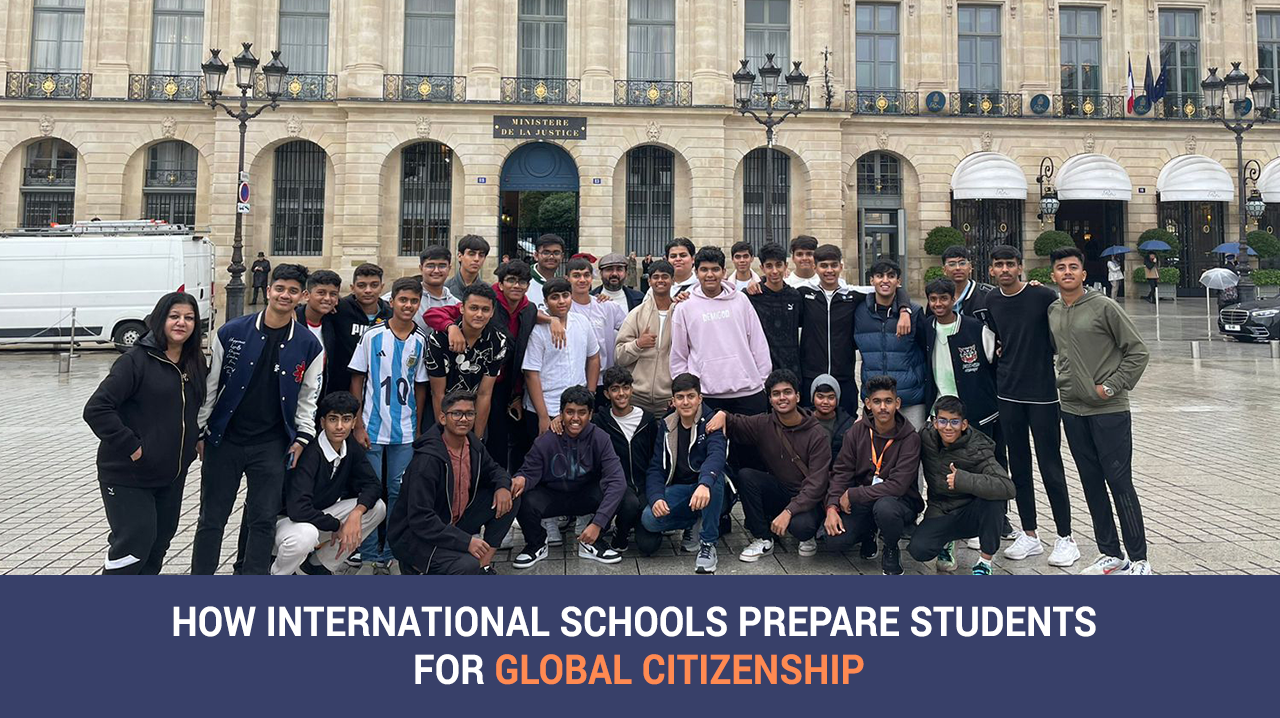How International Schools Prepare Students for a World of Potential outcomes.

In an interconnected world that values variety and diverse understanding, international schools play a vital part in molding students into global residents. These organizations go past customary education, embracing an exhaustive approach that plans students to explore the intricacies of a globalized society. We should investigate how international schools prepare students for global citizenship, imparting in them the abilities, perspectives, and values needed to flourish in a diverse and steadily developing world.
- Intercultural Exposure and Variety:
International Student Body:
One of the characterizing highlights of international schools is their diverse student population. Students cooperate with peers from different cultural foundations, cultivating a climate that energizes diverse understanding and appreciation.
Cultural Festivals and Occasions:
International schools frequently arrange cultural festivals, occasions, and celebrations that furnish students with chances to investigate and praise the lavishness of different societies. This exposure sustains a global outlook and a profound regard for variety.
- Multilingual Proficiency:
Language Learning Programs:
International schools focus on language learning, offering programs that empower students to become capable in numerous languages. This accentuation on multilingualism upgrades relational abilities and works with associations across linguistic and cultural limits.
Language Immersion Initiatives:
Language immersion programs, exchanges, and collaborations with schools in different nations add to students’ linguistic and cultural immersion. These experiences upgrade language abilities as well as advance a more profound understanding of global perspectives.
- International Curricula:
Reception of Global Curricula:
International schools frequently follow globally perceived curricula, like the International Baccalaureate (IB) or Cambridge International Assessments (CIE). These curricula underscore a holistic approach to education, integrating international perspectives and values.
Interdisciplinary Learning:
The interdisciplinary idea of international curricula urges students to make associations between different subjects and global issues. This approach supports critical thinking and a more extensive understanding of the interconnectedness of the world.
- Global Awareness and Current Issues:
Fuse of Global Issues:
International schools incorporate global issues into their educational program, empowering students to investigate and dissect recent developments according to an international perspective. This exposure assists them with fostering an uplifted awareness of global difficulties and opportunities.
Visitor Talks and Studios:
Welcoming visitor speakers, specialists, and experts from different areas of the planet for talks and studios opens students to diverse perspectives and real-world experiences. This firsthand information improves their understanding of global issues.
- Community Service and Social Obligation:
Accentuation on Service Learning:
International schools frequently integrate service-learning projects into their educational program, empowering students to draw in with nearby and global networks effectively. These undertakings impart a feeling of social obligation and sympathy.
Organizations with NGOs and Global Initiatives:
Collaborations with NGOs and support in global initiatives further open students to the significance of adding to the advancement of society. These experiences support the idea of global citizenship in real life.
- Technology and Connectivity:
Integration of Technology:
International schools influence technology to associate students with friends, specialists, and assets globally. Virtual collaborations, online tasks, and computerized stages work with correspondence and collaboration past geological limits.
Global Connectivity Initiatives:
Schools might start global connectivity programs, for example, virtual exchange programs, joint tasks with schools in different nations, and support in international gatherings. These initiatives expand students’ perspectives and cultivate a feeling of interconnectedness.
- Critical Thinking and Problem-Tackling:
Accentuation on Critical Thinking:
International schools focus on the development of critical thinking abilities. Students are urged to address suppositions, dissect data critically, and consider various perspectives while tending to global difficulties.
Problem-Based Learning:
Problem-based learning approaches are utilized to draw in students to tackle real-world problems. These situations frequently have global pertinence, provoking students to think innovatively and cooperatively about arrangements.
Conclusion:
International schools go past customary education standards, effectively molding students into educated, compassionate, and culturally equipped global residents. By supporting a feeling of global citizenship, international schools enable students to contribute seriously to the global community and explore the difficulties and chances of a steadily developing world.

